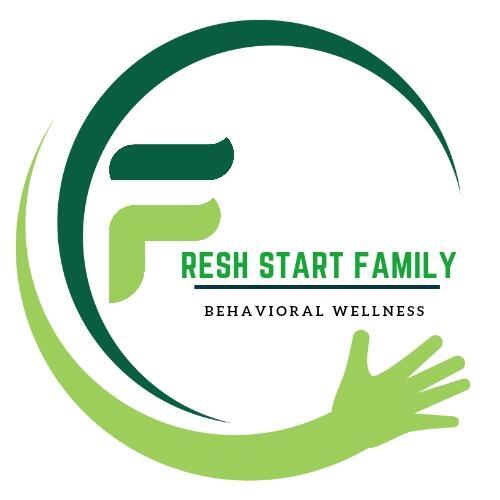Teenage years can be a period of profound emotional and psychological growth, but for many, this time is also marked by trauma. Too often, people dismiss teenage trauma as “just a phase,” a temporary problem that disappears with age. However, the truth is that these experiences can have long-lasting effects on mental health, relationships, and overall well-being that continue to haunt individuals well into adulthood. The pain of unresolved teenage trauma does not simply fade away—it lingers, leaving scars that shape how a person lives and interacts with the world.
How Teenage Trauma Affects Behavior and Emotions

Teenage trauma is any type of distressing experience that happens during adolescence that disrupts emotional or psychological development. Unlike childhood trauma, which often involves events like parental separation or early loss, teenage trauma typically occurs during a time of intense emotional development, making it even more impactful. During these formative years, teenagers are more vulnerable to traumatic events due to their developing sense of identity, social pressures, and the struggles of adolescence.
Common sources of teenage trauma include:
- Bullying: Physical, verbal, or cyberbullying can create long-lasting feelings of insecurity, anxiety, and fear. These experiences often lead to low self-esteem, social withdrawal, and even depression. Victims of bullying may struggle with trusting others or develop a heightened sense of self-doubt that carries into adulthood.
- Family Issues: Divorce, emotional neglect, and physical or emotional abuse within the family are significant sources of trauma for many teenagers. These issues can lead to feelings of abandonment, rejection, or confusion about family roles and relationships. Traumatic experiences at home may result in attachment issues and difficulty trusting others in future relationships.
- Trauma in School: The pressures of academic achievement, social exclusion, or experiences of bullying at school can be deeply distressing. Lack of social support or experiencing discrimination based on gender, race, or socioeconomic status can exacerbate feelings of isolation, stress, and low self-worth.
- Loss: The death of a loved one or close friend can create an emotional void that’s hard to heal. The grief experienced in adolescence can sometimes be compounded by unresolved emotions, leading to depression, anxiety, or unhealthy coping mechanisms.
- Romantic Relationships: Abusive or emotionally damaging relationships during adolescence can leave lasting scars. Teenagers may struggle with feelings of betrayal, confusion, or guilt, especially if they do not have the emotional maturity to fully understand or navigate the complexities of unhealthy relationships.
The adolescent brain is still developing, which means that traumatic experiences during this time are often processed in a way that can have a deep, lasting effect. These early experiences shape emotional regulation, self-image, and the way teenagers interact with the world around them.
Signs and Symptoms of Teenage Trauma

While every teen responds differently, there are common signs and symptoms that may indicate a young person is struggling with unresolved trauma. Early recognition is crucial for timely support and intervention.
- Mood Swings: Sudden and unpredictable shifts in emotions, such as going from anger to sadness quickly, may indicate underlying emotional distress.
- Withdrawal: A teen may begin to avoid friends, family, or activities they once enjoyed, preferring isolation over social interaction.
- Anger or Irritability: Teens may exhibit intense anger or become easily frustrated, often out of proportion to the situation.
- Sleep Disturbances: Trouble falling asleep, staying asleep, or experiencing nightmares may point to trauma-related anxiety or fear.
- Academic Struggles: A sudden drop in grades or loss of interest in school can signal a teen’s difficulty in concentrating due to emotional turmoil.
- Risky Behaviors: Engaging in drug or alcohol use, unsafe sex, or reckless activities may be a way of coping with or escaping painful emotions.
- Hypervigilance: Being constantly on edge, easily startled, or always “on alert” is a common trauma response linked to a sense of ongoing threat.
- Low Self-Esteem: Teens might express feelings of worthlessness or guilt, especially if they blame themselves for the traumatic event.
- Physical Complaints: Frequent headaches, stomachaches, or other unexplained physical symptoms can be how trauma manifests in the body.
- Difficulty Trusting Others: A teen may become guarded or suspicious, finding it hard to form or maintain relationships.
The Emotional and Psychological Impact of Teenage Trauma

The psychological effects of teenage trauma are not always immediately visible, but they can surface in powerful, disruptive ways—sometimes years later. Adolescents are in a crucial stage of emotional and cognitive development, which makes them particularly vulnerable to the lasting impact of trauma. Without proper support, these unresolved experiences can manifest in adulthood, affecting relationships, work, and overall well-being.
Teenagers who experience trauma are at higher risk of developing a wide range of mental health conditions, such as:
- Anxiety: Persistent feelings of fear, dread, or nervousness. This can escalate to panic attacks or chronic anxiety disorders that interfere with school, friendships, and everyday life.
- Depression: Deep, lasting sadness, emotional numbness, withdrawal from loved ones, and a bleak outlook on the future.
- Low Self-Esteem: Trauma often leaves teens questioning their self-worth, leading to internalized shame, guilt, or a constant sense of inadequacy.
- Trust Issues: Early betrayal or emotional wounds can result in difficulty forming or maintaining relationships, as teens may struggle to feel safe or open with others.
In adulthood, these issues can evolve into more serious conditions like Post-Traumatic Stress Disorder (PTSD) or chronic anxiety, further complicating relationships and career prospects.
The long-term effects of unresolved trauma can also lead to maladaptive coping mechanisms like substance abuse, eating disorders, or self-harm. These behaviors often serve as a way to numb emotional pain or avoid confronting past trauma, perpetuating a cycle of self-destruction.
The Connection Between Teenage Trauma and Adult Behavior

Teenage trauma doesn’t just vanish with age—it carries over into adulthood and affects how individuals perceive themselves and interact with the world. A person who has experienced trauma during adolescence may carry certain emotional burdens that shape their adult behaviors, relationships, and decision-making.
How Teenage Trauma Impacts Adulthood:
- Career Choices: Individuals may struggle with career advancement due to feelings of inadequacy, fear of failure, or difficulties with authority figures.
- Relationship Difficulties: Trauma can make it hard to form healthy relationships, as trust may be damaged, leading to insecurity, jealousy, or emotional distance.
- Parenting Styles: Those who were emotionally or physically abused during adolescence may struggle with creating a safe, nurturing environment for their own children.
- Addiction and Coping Mechanisms: The trauma may lead to self-destructive behaviors like alcohol or drug abuse, gambling, or other compulsive habits.
Understanding the connection between teenage trauma and adult behavior is key to breaking free from the cycle of hurt and moving toward healing.
How to Heal from Teenage Trauma

Healing from teenage trauma is a journey that requires compassion, patience, and the right therapeutic support. Traumatic experiences during adolescence—whether from abuse, neglect, bullying, loss, or violence—can leave lasting emotional and psychological effects. These experiences can interfere with a teen’s ability to trust, regulate emotions, and feel safe.
Fortunately, with early intervention and trauma-informed care, teens can learn to process their pain, build resilience, and reclaim their emotional well-being.
When to See a Mental Health Professional
Not every difficult experience leads to trauma, but when a teen begins to show persistent emotional, behavioral, or physical symptoms following a distressing event, it may be time to consult a mental health professional. Recognizing the warning signs early allows for timely intervention, which greatly improves the chances of long-term recovery and emotional stability.
Seek professional help if the teen:
- Frequently relives the traumatic event through nightmares, flashbacks, or intrusive thoughts
- Appears withdrawn, numb, or disconnected from others
- Shows signs of prolonged sadness, anxiety, or panic attacks
- Has sudden changes in sleep patterns or appetite
- Struggles academically or shows a loss of interest in school and hobbies
- Begins to act out with aggression, defiance, or risky behaviors
- Engages in self-harm or talks about wanting to die
- Is using substances like drugs or alcohol to cope
- Displays chronic physical complaints (e.g., headaches, stomachaches) without medical explanation
- Was exposed to trauma and is having difficulty coping weeks or months later
Therapeutic Approaches for Teenage Trauma
Mental health professionals use a range of therapeutic approaches designed specifically to support teens in processing trauma, rebuilding trust, and restoring emotional balance. These methods are research-backed, age-appropriate, and customized to match the teen’s developmental stage, personality, and type of trauma experienced.
Common therapeutic approaches include:
- Trauma-Focused Cognitive Behavioral Therapy (TF-CBT): Helps teens reframe negative thoughts, manage emotions, and develop healthier coping strategies
- EMDR (Eye Movement Desensitization and Reprocessing): Reduces the intensity of traumatic memories through guided eye movement or bilateral stimulation
- Dialectical Behavior Therapy (DBT): Focuses on teaching skills like emotional regulation, distress tolerance, and mindfulness
- Narrative Therapy: Encourages teens to tell their story and redefine their identity beyond the trauma
- Art and Music Therapy: Offers non-verbal methods for expressing difficult emotions and processing traumatic experiences
- Play Therapy: Utilized with younger teens to allow expression of trauma through games and creative interaction
- Mindfulness-Based Stress Reduction (MBSR): Teaches relaxation and awareness techniques to calm the nervous system
- Group Therapy: Provides shared space for teens to connect with peers who have had similar experiences, reducing shame and isolation
Why It Still Hurts Years Later:
Teenage trauma affects the brain’s development in ways that can reverberate throughout adulthood. The adolescent brain is still growing, and traumatic events during this stage can influence how a person perceives themselves and the world around them. If not addressed, these wounds can persist, influencing emotional responses, self-esteem, and even the ability to form healthy relationships long after adolescence has passed.
The Role of Family and Friends in Healing

Support from loved ones can significantly enhance the healing process. If you or someone you care about has experienced teenage trauma, being a consistent, empathetic presence can help facilitate recovery.
- Creating a Safe Space: It’s essential to provide a non-judgmental space where individuals feel safe sharing their feelings and experiences.
- Encouraging Professional Help: Sometimes, the best way to support someone is to encourage them to seek professional help, such as therapy or counseling.
- Patience and Understanding: Healing from trauma takes time, and those supporting someone through this journey should be patient, avoid pressuring them, and offer consistent encouragement.
For individuals recovering from teenage trauma, knowing they have a support network makes all the difference.
Empowering Teens to Heal from Trauma with the Right Support and Resources
Teenage trauma is not something that simply fades away with age—it has lasting effects that can influence mental health, relationships, and self-esteem for years to come. However, with the right support and treatment, individuals can heal and move forward with hope. If you or someone you know is struggling with the aftereffects of teenage trauma, know that help is available. Don’t let the pain define the rest of your life—seek professional help, and begin the journey toward healing today.
If you’re looking for a compassionate and supportive space to heal, A Fresh Start Behavioral Health Services is here for you. Contact us to learn more about how we can help you or your loved one begin the journey to recovery and well-being.

